Matt Rees's Blog - Posts Tagged "dashiell-hammett"
Why's a Palestinian sleuth in Brooklyn?
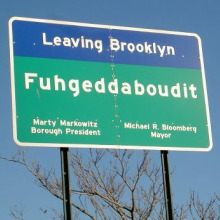 I’ve been called the Dashiell Hammett of Palestine, the John Le Carre of the Middle East, the James Ellroy of…Palestine, the Graham Greene of Jerusalem, and the Georges Simenon of the Palestinian refugee camps. Depends which review you happen to have read.
I’ve been called the Dashiell Hammett of Palestine, the John Le Carre of the Middle East, the James Ellroy of…Palestine, the Graham Greene of Jerusalem, and the Georges Simenon of the Palestinian refugee camps. Depends which review you happen to have read.Until now I’ve published three novels about Omar Yussef, my Palestinian schoolteacher/sleuth. Omar has been described as the Philip Marlowe of the Arab street, the Hercules Poirot of the Near East, Sam Spade fed on hummus, and Miss Marple crossed with Yasser Arafat.
Why then is my new Omar Yussef novel THE FOURTH ASSASSIN,/a> set in New York City? Not in the Middle East, the Near East, Palestine, the Levant, the Fertile Crescent, or any other place where Yasser may be fornicating with dear old Miss Jane Marple.
I lived in New York six years, until I came to Jerusalem in 1996. I know it better than any city outside the Middle East. I had a lot of fun in New York. Maybe too much fun. In no other place in the world can a young man so overindulge in the temptations originally offered in the city of Sodom. Which in reality is close to where I live now in Jerusalem. Though you wouldn’t know it to look at the place.
I know New York with my eyes closed. Literally. In my twenties, after leaving some bar or club, I blacked out on every line on the subway map.
I dated women from every borough of the city, from Westchester and upstate. From the 201 area code (dare I say, New Jersey.)
I married a girl from the North Shore of Long Island, and in my continuing effort to know New York in all its facets, when we divorced, I married a beautiful woman from the South Shore of Long Island.
But each time I returned, no matter how well I thought I knew the place, New York seemed different. The change became most apparent after 9/11. I wanted to understand it through the eyes of Omar Yussef.
That’s why he finds himself in Brooklyn in THE FOURTH ASSASSIN. Visiting the area of Bay Ridge that has become known as “Little Palestine,” for the influx of Palestinian immigrants.
Little Palestine isn’t a community of Palestinian intellectual émigrés, such as sprang up in European capitals in the 1970s. It’s a new wave of young men mostly, saving to bring their families over, working two or more jobs. Theirs is a typical American immigrant story.
Except for the FBI agents going through their trash.
The Bureau didn’t uncover any broad conspiracy in Little Palestine. But it did add to the tensions between the Arab community and other New Yorkers after the attack on the Twin Towers.
That’s the situation into which I wanted to place Omar Yussef. Mutual distrust, after all, makes for good crime fiction.
In Brooklyn, it also happens to be real.
Published on February 11, 2010 23:51
•
Tags:
bay-ridge, brooklyn, crime-fiction, dashiell-hammett, fbi, fertile-crescent, georges-simenon, graham-greene, hercules-poirot, james-ellroy, jerusalem, levant, little-palestine, long-island, middle-east, miss-jane-marple, miss-marple, near-east, new-jersey, new-york, omar-yussef, palestine, palestinians, philip-marlowe, sam-spade, the-fourth-assassin, upstate-new-york, westchester-county, yasser-arafat
Gumshoe Review: THE FOURTH ASSASSIN 'excellent'...and a list of crime fiction good, bad and pointless
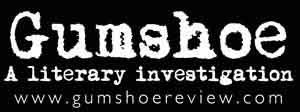 Top crime fiction blog Gumshoe Review rates my new Palestinian crime novel THE FOURTH ASSASSIN very highly: "Rees does an excellent job of showing the pressures on the young Palestinians and describing the microcosm of one immigrant community within the U.S. The mystery also contains plenty of twist and turns." Read Mel Jacobs's full review.
Top crime fiction blog Gumshoe Review rates my new Palestinian crime novel THE FOURTH ASSASSIN very highly: "Rees does an excellent job of showing the pressures on the young Palestinians and describing the microcosm of one immigrant community within the U.S. The mystery also contains plenty of twist and turns." Read Mel Jacobs's full review.If you feel compelled to read any other crime fiction but mine -- or if you've already read all my books -- I'd direct you to a list of the 100 Best Crime Books on the Court Reporter blog. Many of the selections are hardly surprising -- you're not likely to say to yourself, "Oh, The Maltese Falcon, how'd they come up with that?" Well, if you DO say that, then you've probably got 100 new books for your nightstand, because surely you can't have read any crime fiction BEFORE you read The Maltese Falcon. That's just unacceptable! Anyway, much of the rest of the list comprises overrated twaddle (dragon tattoos, for example) which has somehow become accepted as a staple of the genre (several genres in fact, because the list includes true crime, thrillers and slasher stuff), classics which to those who bother to read them these days will be head-scratchingly dull, and many others which are fiendishly outdated to the modern reader (yes, Sherlock Holmes fans, I'm talking to you). But you may find something you didn't know about, so take a look.
Published on March 02, 2010 02:21
•
Tags:
bay-ridge, blogs, brooklyn, court-reporter, crime-fiction, dashiell-hammett, gumshoe-review, lists, little-palestine, mel-jacobs, new-york, palestine, palestinian, reviews, sherlock-holmes, stieg-larsson, the-fourth-assassin, the-girl-with-the-dragon-tattoo, the-maltese-falcon, united-nations
'Exotic' crime fiction makes unpalatable places bearable
 “Exotic” crime fiction has taken off in the last decade. People want to read about detectives in far-off places, even if they don’t want to wade through learned histories of those distant lands.
“Exotic” crime fiction has taken off in the last decade. People want to read about detectives in far-off places, even if they don’t want to wade through learned histories of those distant lands.Many of the biggest selling novels of the last decade have been “exotic crime.” You’ll find a detective novel set almost everywhere in the world, from the “Number One Ladies Detective Agency” in Botswana through Camilleri’s Sicily to dour old Henning Mankell in the gloomy south of Sweden.
The success of my co-bloggers at International Crime Authors – with their detectives plying their trade in Thailand, Laos, and Turkey, alongside my Palestinian sleuth Omar Yussef – is also proof that this taste for international crime is more than just a publishing fad. The novels aren’t just Los Angeles gumshoe stuff transported to colder or poorer climes.
Here’s what I think is behind it:
Read a history book or a book of contemporary politics. Often you’ll find a list of the enormous numbers of people destroyed around the world by war and famine and neglect. You won’t get any sense that the world…makes sense. Crime fiction doesn’t purport to save the planet, but it does demonstrate that one man – the detective – can confront a mafia, an international espionage organization, a government and come out with at least a sliver of justice.
And justice is one of the few ideas which can still inspire.
Readers also prefer crime fiction about distant countries over so-called “literary” fiction about such places.
That’s because crime fiction gives you the reality of a society and also, by definition, its worst elements — the killers, the lowlifes — but it also gives you a sense that a resolution is possible. (See above.)
Literary fiction, by contrast, often simply describes the degradation of distant lands. If you read Rohinton Mistry’s “A Fine Balance,” for example, you probably thought it was a great “literary” book, but you also might’ve ended up feeling as abused as his downtrodden Indian characters without the slightest sense of uplift.
Crime fiction doesn’t leave you that way.
Now, that’s also true of the Los Angeles gumshoe. But the international element gives us something else to wonder about in these new novels. Not just because the scene is alien. Rather, it’s because we all trust to some extent that bad guys in Los Angeles will go to jail — or become Hollywood producers. We have faith in the system. So a detective has some measure of backing from the system, and consequently novelists have to push credibility to its limits in order to make him look like he’s taking a risk, to make him look brave.
International crime, when it’s set in the Developing World in particular, can’t be based on that same trust in the just workings of the system. The lack of law and order in Palestine, as I observed it as a journalist covering the Palestinian intifada, was one of the prime reasons I had for casting my novels as crime novels. It was clear the reality wasn’t a romance novel. Gangsters and crooked cops in the West Bank suggested the more vibrant days of the US crime novel back in the time of Chandler and Hammett, when it was much harder to argue that a city or mayor or police chief wouldn’t be in the pocket of the bad guys.
When a detective goes up against such odds in international crime fiction, it’s truly inspiring.
For books that start with a murder, that’s not what you’d expect, but it’s the reason for the success of this new exotic avenue of the crime genre.
Published on May 13, 2010 01:37
•
Tags:
a-fine-balance, alexander-mccall-smith, andrea-camilleri, crime-fiction, dashiell-hammett, detective-fiction, exotic-crime, henning-mankell, italy, laos, los-angeles, middle-east, omar-yussef, palestine, palestinians, raymond-chandler, rohinton-mistry, sweden, thailand, turkey
Best First Paragraphs in Crime Fiction: Part 1
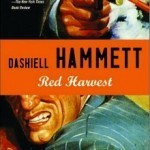 If you have a lot of time to waste, you never judge a book by its cover. But don’t try telling me you don’t judge it by its first paragraph.
If you have a lot of time to waste, you never judge a book by its cover. But don’t try telling me you don’t judge it by its first paragraph.What makes a great first paragraph? And which are the greatest? We all have favorites, some of which have become clichéd –– as happens to anything, whether it’s the best of times or the worst of times, or if you grew up in a family that was unhappy in its own way. See what I mean?
In general it’s hard to beat Hemingway’s opening to “The Sun Also Rises” for laying out the narrator’s character, as well as the character being described: “Robert Cohn was once middleweight boxing champion of Princeton. Do not think that I am very much impressed with that as a boxing title, but it meant a lot to Cohn.”
But what about crime fiction? Over the next few weeks, I’m going to look at some of the best first lines and paragraphs in the genre. Next week, we’ll do a little Chandler (how did you guess?) and then we’ll be on to Simenon, who was a nasty enough man to write perfectly bitter downbeat prose from the very start of his books.
Let’s begin, though, with the man who in many ways beats them all: Dashiell Hammett.
I bet you think I’m going to talk about “The Maltese Falcon,” which in the first paragraph describes Sam Spade as looking “rather pleasantly like a blond Satan.”
But I’m not.
No, we’re going to have a quick gander at the opening of “Red Harvest,” Hammett’s first novel, in which his Continental Op heads to a corrupt small town. It starts this way:
I first heard Personville called Poisonville by a red-haired mucker named Hickey Dewey in the Big Ship in Butte. He also called his shirt a shoit. I didn’t think anything of what he had done to the city’s name. Later I heard men who could manage their r’s give it the same pronunciation. I still didn’t see anything in it but the meaningless sort of humor that used to make richardsnary the thieves’ word for dictionary. A few years later I went to Personville and learned better.
For the rest of this post, read The Man of Twists and Turns.
Published on December 15, 2011 03:36
•
Tags:
crime-fiction, dashiell-hammett, detective-fiction, first-paragraphs, mysteries, noir-fiction, style, writers, writing
Best First Paragraphs in Crime Fiction: Part 2
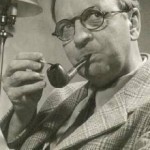 I’m writing this in a plain office in the corner of a building that was described by the realtor as “exclusive,” though it doesn’t exclude despondent ultra-Orthodox Jews panhandling for cash, plumbers who break all the pipes you hadn’t called them to fix, or the cheerful lady who lets her dog pee in the elevator. There’s the hum of heavy traffic from the road below and a view across the valley of brake lights on a highway where no one ever seems to move. The air is clear enough up here that I usually only smell me, sweating through the desert heat, except when the garbage truck empties the trashcans and sends up a rotten fruit ripeness, or when the khamsin blows and I can smell the dirt on the hot wind. There’s a mosquito in here, but the bastard isn’t friendly enough to show himself. When he does, I’ll do what people in the Middle East do best. There are already spots of my blood across the whitewash where his brothers and sisters felt the thick side of my fist.
I’m writing this in a plain office in the corner of a building that was described by the realtor as “exclusive,” though it doesn’t exclude despondent ultra-Orthodox Jews panhandling for cash, plumbers who break all the pipes you hadn’t called them to fix, or the cheerful lady who lets her dog pee in the elevator. There’s the hum of heavy traffic from the road below and a view across the valley of brake lights on a highway where no one ever seems to move. The air is clear enough up here that I usually only smell me, sweating through the desert heat, except when the garbage truck empties the trashcans and sends up a rotten fruit ripeness, or when the khamsin blows and I can smell the dirt on the hot wind. There’s a mosquito in here, but the bastard isn’t friendly enough to show himself. When he does, I’ll do what people in the Middle East do best. There are already spots of my blood across the whitewash where his brothers and sisters felt the thick side of my fist.If that sounds like a spoof, you surely know who I’m caricaturing. We decided last week that you couldn’t do much better than the opening paragraph of Hammett’s “Red Harvest” for an introduction to the narrative voice, narrator, place and tone of the entire novel. But if anyone could beat it, we’d have to look at Raymond Chandler.
The grumpy god of the gumshoe genre claimed not to have much time for the
idea of a classic in crime writing. In one of his essays, he wrote that contemporary writers who aimed for historical fiction, social vignette, or broad canvas would never surpass “Henry Esmond”, “Madame Bovary”, or “War and Peace”. Crime writers, on the other hand, would easily be able to
devise a better mystery than the ones detailed in “The Hound of the
Baskervilles” or “The Purloined Letter”. “It would be rather more difficult
not to,” he wrote.
Still, the poet with the pipe (okay, no more quirky names for Ray) proved
himself wrong. Or rather he proved that he was right not to focus so much
on the mystery element and, instead, to build a mysterious atmosphere and a sardonic sense of humor. From the opening paragraph.
This is how he starts a long 1950 short story called “Red Wind”:
There was a desert wind blowing that night. It was one of those hot dry
Santa Anas that come down through the mountain passes and curl your hair
and make your nerves jump and your skin itch. On nights like that every
booze party ends in a fight. Meek little wives feel the edge of the carving
knife and study their husbands’ necks. Anything can happen. You can even
get a full glass of beer at a cocktail lounge.
Like the opening paragraph of “Red Harvest,” this gives us all the elements
we’d expect. It also tells you a lot about the narrator and his lifestyle.
The booze parties, and the sense of being gypped at the cocktail lounge.
But the opening paragraph which might be said to define an entire genre ––
and the sub-genres of attempts to copy the true representatives of the
genre, and also to parody it –– starts Chandler’s 1949 novel “The Little
Sister”:
Read the rest of this post on my blog The Man of Twists and Turns.
Published on December 21, 2011 23:12
•
Tags:
crime-fiction, dashiell-hammett, mysteries, noir-fiction, philip-marlowe, raymond-chandler
Poisonville: the Music of Crime Fiction
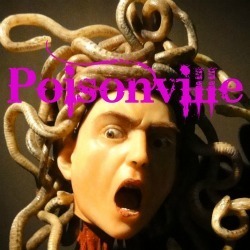 The only thing as evocative as a good noir crime novel is music. So, I thought, how about making an album of music about crime fiction? That’s what I’ve done and I’m unveiling it here.
The only thing as evocative as a good noir crime novel is music. So, I thought, how about making an album of music about crime fiction? That’s what I’ve done and I’m unveiling it here.The project's called Poisonville, after the mispronounced location of Dashiell Hammett’s first novel “Red Harvest.” (The place was really called Personville, but Hammett’s Op learns that people call it Poisonville for a reason.)
You can listen to the songs free on my website. I hope you’ll share them. I’ve found it inspiring to work on these songs. You’ll see the styles vary from industrial to rock to funk to the sound of hoboes in a speakeasy, as well as my impersonations of Leonard Cohen and Lou Reed.
Here’s the idea behind Poisonville: I’ve been in bands for many years, playing various instruments. But I have a newish baby and I don’t want to stay out late performing, because I need all the sleep I can get! So I created a studio – I call it Big Pink Oboe Studio. Not because I play the oboe. The pink oboe is an old Spike Milligan euphemism for an excitable part of the male anatomy. I also revived my old stage persona: when I was in an alternative band in New York in the 1990s, I was Napoleon Blownapart. (The band was Money Shot, which those of you with any knowledge of porno parlance will understand and also gives you and idea of the sort of gig we used to do.) The name gets me into the right head for music.
And so into the studio I went, writing songs about my own books and songs about books I love (by Hammett and Chandler). I perform most of the instruments, with a little help from The Talented David Brinn (which is the stage name of my pal David Brinn, in case you’re wondering) and The Lovely Jasmine Schwartz (which is the name in her passport, you should know.)
I’ve also written songs with a couple of crime authors: Jasmine Schwartz, whose fabulous Neurotic Detective series will be out in a few months, and Helen Fitzgerald, the Australian writer of the sexiest crime novels around. You can hear these writers reading a line or two from their books during the course of the songs.
Jasmine and Helen both wrote lyrics about their books, which I set to music. I’m intending to do the same thing with some other favorite writers of mine in the coming months. If you think there are crime writers I ought to get on board (because they’ve written books that’d work well in a musical setting), let me know.
You’ve probably stolen music on the web, even if the music wasn’t about crime. Poisonville’s crime fiction music is your chance to listen free – without being a criminal.
Published on May 03, 2012 03:08
•
Tags:
crime-fiction, dashiell-hammett, helen-fitzgerald, jasmine-schwartz, lyrics, music, poisonville, raymond-chandler
Poisonville: Crime Fiction Music Podcats
The only thing as evocative as a good noir crime novel is music. So, I thought, how about making an album of music about crime fiction? That’s what I’ve done and I unveil it here. The project’s called Poisonville, after the mispronounced location of Dashiell Hammett’s first novel “Red Harvest.” (The place was really called Personville, but Hammett’s Op learns that people call it Poisonville for a reason.) You can listen to the songs free on my website. Share them. I found it inspiring to work on these songs. You’ll see the styles vary from industrial to rock to funk to the sound of hoboes in a speakeasy, as well as my impersonations of Leonard Cohen and Lou Reed.
Download the Podcast: (Download the MP3)
Subscribe via iTunes
Published on May 05, 2012 03:02
•
Tags:
crime-fiction, dashiell-hammett, helen-fitzgerald, jasmine-schwartz, lyrics, music, poisonville, raymond-chandler
Poisonville: Song of the crooked hoboes
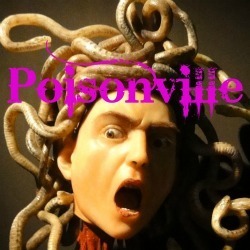 My Poisonville project produces music about crime fiction. Some of the songs are about my books, some about the work of greats like Chandler, and others are collaborations with contemporary writers. This is the title song of the project, the album, the band. It's based around Dashiell Hammett's first novel "Red Harvest." At the start of the book, Hammett's narrator, a detective called the Continental Op, says that he "first heard Personville called Poisonville by a red-haired mucker named Hickey Dewey." Later, he says, he heard the name pronounced that way by people who didn't also called their shirt a "shoit." The novel shows us why Personville deserved the name. The song was co-written by The Talented David Brinn who plays the accordion. I do the rest. I aimed for a sound like a bunch of crooked hoboes playing in a Poisonville speakeasy.
My Poisonville project produces music about crime fiction. Some of the songs are about my books, some about the work of greats like Chandler, and others are collaborations with contemporary writers. This is the title song of the project, the album, the band. It's based around Dashiell Hammett's first novel "Red Harvest." At the start of the book, Hammett's narrator, a detective called the Continental Op, says that he "first heard Personville called Poisonville by a red-haired mucker named Hickey Dewey." Later, he says, he heard the name pronounced that way by people who didn't also called their shirt a "shoit." The novel shows us why Personville deserved the name. The song was co-written by The Talented David Brinn who plays the accordion. I do the rest. I aimed for a sound like a bunch of crooked hoboes playing in a Poisonville speakeasy.[soundcloud url="http://api.soundcloud.com/tracks/4069..." params="auto_play=false&show_artwork=true&color=ff7f00" width="100%" height="166" iframe="true" /]
Published on May 09, 2012 03:00
•
Tags:
crime-fiction, dashiell-hammett, music, mysteries, noir-fiction



